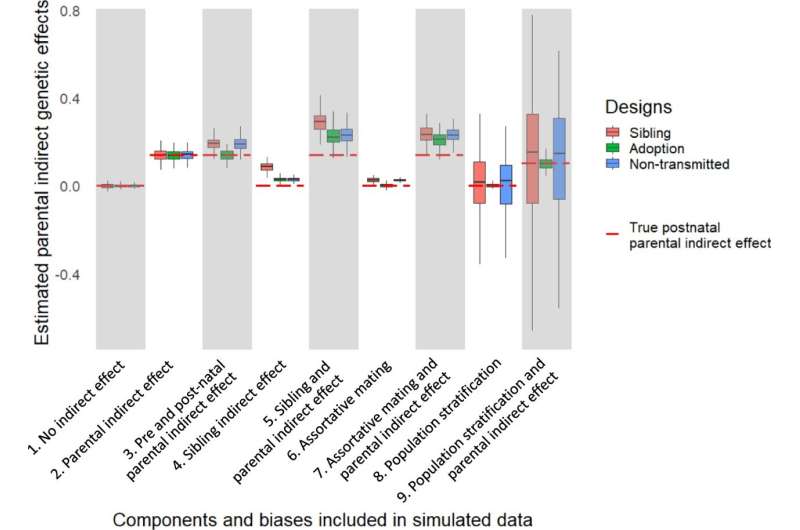Nature via nurture: How parents' cognitive and non-cognitive skills influence their children's education

New research from the Institute of Psychiatry, Psychology & Neuroscience (IoPPN) at King's College London shows that parents' genes linked to cognitive and non-cognitive skills both affect children's educational outcomes.
The research, published in Nature Communications, investigated educational records and genetic data on more than 40k children in the U.K. and The Netherlands, and found that parental genes can influence their children's educational outcomes through the environment they create, even when the genetic factors are not inherited. This is known as an "indirect genetic effect."
The researchers argue that understanding the mechanisms behind the transmission of educational outcomes from parents to their children could help to inform future strategies to combat inequality in education.
In education, "non-cognitive skills" is an umbrella term used to describe characteristics such as academic motivation, social skills, learning strategies and perseverance. "Cognitive skills" refers to traits like working memory and verbal IQ. Previous research has investigated how much children's non-cognitive skills can influence their own educational outcomes. However, little research has been conducted into the role of parents' non-cognitive skills. Additionally, research on how parents affect offspring education has generally not accounted for genetic inheritance, which is needed to establish how much parents' genes truly affect children through the environment.
The investigators compared educational outcomes from three data sets—the U.K. Biobank, the U.K. Twins Early Development Study and the Netherlands Twins Register—to establish the environmental effects of parents' genes on their children's educational outcomes. Educational outcomes of the participating children included standardized test results and teacher-reported grades, as well as the total number of years that they were in education.
They established that parental genes for both cognitive and non-cognitive skills that are not inherited by their children still influence their child's educational success. A parent's genetic disposition can still be passed to their child even if it's not inherited, as they are more likely to create an environment through which perseverance is able to flourish. Although these genes are not passed on to children, they have a social impact via the environments that the parents create.
"Classic 'parental nurture' could be important—for example, genes influence parents to teach their child to stay focused and motivated. But broader mechanisms are also key—for example, genetic predispositions play a role in a parent's decision to move to a certain neighborhood, which in turn influences the child's education," says Dr. Rosa Cheesman, the study's senior author and postdoctoral fellow at King's IoPPN.
Perline Demange, the study's first author from Vrije Universiteit said, "We didn't only use one genetic design in one dataset. The fact that our findings were broadly corroborated across the different methods and across studies gives us confidence to say that parental environment associated with cognitive and non-cognitive skills matter for their children's educational success.
"Education is highly predictive of both social mobility and health over the course of someone's life. By understanding the conditions for success, we can help to inform policy to give future generations the best possible start."
"Estimating effects of parents' cognitive and non-cognitive skills on offspring education using polygenic scores" was published in Nature Communications.
More information: Perline A. Demange et al, Estimating effects of parents' cognitive and non-cognitive skills on offspring education using polygenic scores, Nature Communications (2022). DOI: 10.1038/s41467-022-32003-x


















